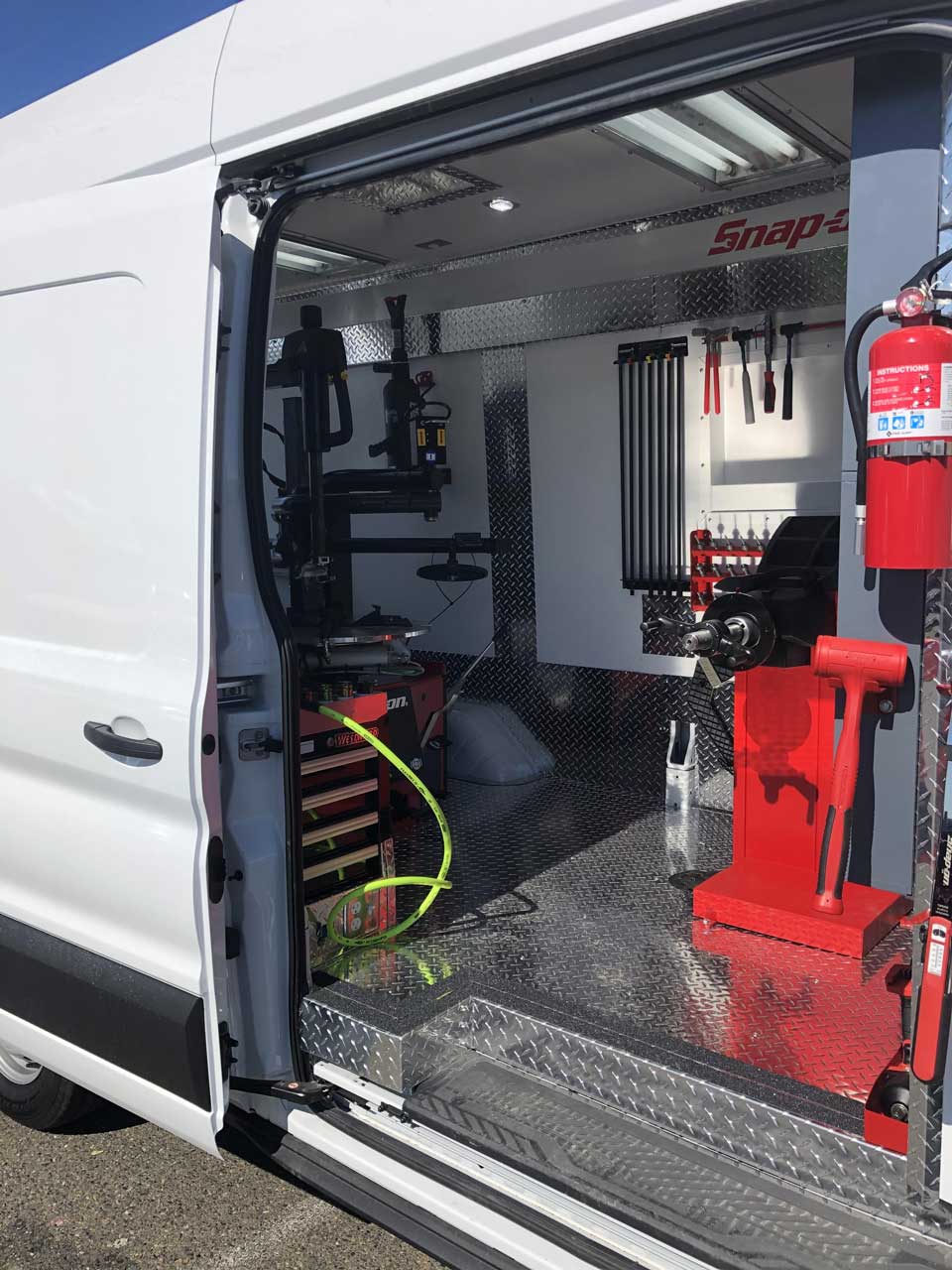Keep Rolling Properly: GMC Tires Service by Morris Tires
Keep Rolling Properly: GMC Tires Service by Morris Tires
Blog Article
Tire Solution: The Influence of Climate Condition
When it comes to making certain optimum efficiency and security on the roadway, comprehending the effect of climate conditions on tire service is vital. GMC Tire Service. In this discussion, we will certainly check out the elaborate relationship in between weather condition conditions and tire service, dropping light on the importance of weather-specific tire upkeep techniques and factors to consider.
Warm and Tire Efficiency
When subjected to high temperature levels, tires experience modifications in performance that can significantly impact automobile safety and handling. The warmth generated from long term driving or hot weather conditions triggers the tire rubber to soften, causing minimized step life and enhanced wear. As the rubber becomes softer, the tire's grasp when traveling diminishes, influencing stopping ranges and general traction. In severe situations, too much warmth can also trigger tire blowouts, posing a serious security threat to the lorry and its occupants.

Cold Weather Condition Impacts
Winter problems can have a significant influence on tire efficiency and safety and security. As temperatures decline, tire rubber can harden, causing lowered traction on icy or snow-covered roadways. In winter, tires might also lose air pressure more rapidly, which can affect dealing with and fuel effectiveness. Additionally, cold temperature levels can cause tire sidewalls to tense, raising the danger of damages from pits or various other roadway dangers.
To alleviate the results of winter on tires, it is critical to regularly examine tire pressure and inflate them to the maker's suggested degrees. Using winter season or all-season tires made for winter conditions can additionally improve traction and hold on icy or snowy roadways. Correct tire maintenance, including routine examinations for wear and damage, becomes even extra critical during chillier months to ensure ideal performance and safety.
Rainy Conditions Effect
Tires with worn-out footsteps are a lot more susceptible to hydroplaning, where a layer of water builds up between the tire and the road surface, leading to loss of grip. To combat this, motorists need to frequently evaluate their tires for ample tread deepness and consider spending in tires specifically made for damp conditions.
In addition, rainy weather can additionally reduce presence, making it challenging for motorists to see the road ahead clearly (GMC Tire Service). In such conditions, it is vital to change driving speeds accordingly and preserve a secure adhering to range to allow for unexpected quits. Appropriately filled with air tires can likewise assist in preserving control on wet roadways by supplying better handling and hold
Snow and Tire Safety And Security
Snow-covered roads pose one-of-a-kind challenges for motorists, emphasizing the importance of correct tire selection and upkeep. When driving in snowy conditions, having the best tires can make a considerable difference in security and efficiency. Wintertime tires are read the full info here designed with special rubber substances and walk patterns to give much better grip on snow and ice contrasted to all-season tires. The deeper treads and sipes of winter months tires assist grasp the road better, decreasing the threat of gliding and slipping.

Furthermore, vehicle drivers should take into consideration installing tire chains in extreme snowy conditions. Tire chains give extra traction by grasping the snow and ice, improving stability and control. It is important to comply with maker directions when using and setting up tire chains to avoid damages to the tires and automobile (GMC Tire Service). By selecting the appropriate tires, keeping appropriate rising cost of living, and taking into consideration added grip help like tire chains, drivers can improve their safety and security when navigating snow-covered roadways.
Weather-Related Tire Maintenance
Weather-related tire maintenance encompasses a range of techniques intended at making sure optimum tire feature and durability in various weather situations. One essential element of weather-related tire upkeep is tire stress official statement law. Examining tire walk on a regular basis and replacing tires when step wear gets to a particular deepness is important for maintaining traction and stability in unfavorable weather condition.
Conclusion
In conclusion, climate condition have a substantial influence on tire performance and safety. From warm affecting tire pressure and use to winter minimizing traction, it is necessary to take into consideration the weather condition when preserving and utilizing tires. Rainy problems can lower grasp and result in hydroplaning, while snow can boost the threat of crashes if tires are not properly equipped. Weather-related tire upkeep is critical in making certain optimal efficiency and security when traveling.
In this conversation, we will certainly explore the detailed partnership in between weather problems and tire service, dropping light on the relevance of weather-specific tire maintenance practices and considerations.

Report this page